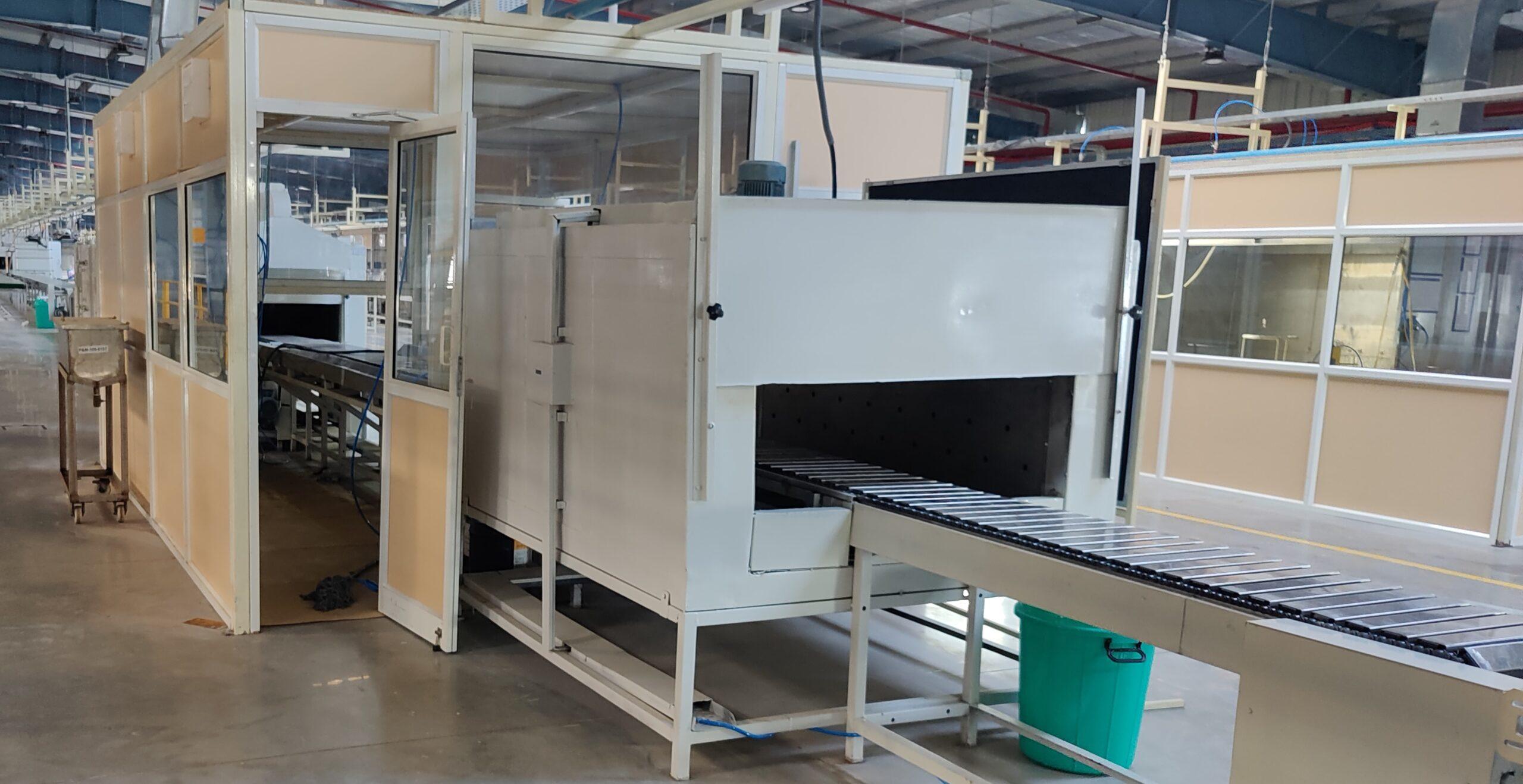Industrial conveyor ovens play a crucial role in the food processing industry by providing a controlled and efficient means of cooking, baking, drying, and heating various food products. These ovens are designed to handle high production volumes and offer several advantages that make them indispensable in food processing operations. Here are some key aspects of their role in the industry:
- Uniform Cooking and Baking: Conveyor ovens ensure consistent and uniform cooking or baking of food products. The conveyor belt system moves the products through the oven at a controlled speed, ensuring that all items receive the same level of heat and exposure to cooking or baking elements. This uniformity is essential for maintaining product quality and safety.
- Increased Production Efficiency: Conveyor ovens are designed for high-volume production, allowing food processing facilities to cook or bake a large quantity of products in a relatively short time. This increased efficiency can lead to cost savings and better utilization of resources.
- Precise Temperature Control: Industrial conveyor ovens provide precise temperature control, allowing food manufacturers to set and maintain specific temperature profiles for different products. This control is essential for achieving the desired texture, flavor, and appearance of food items.
- Versatility: These ovens are versatile and can be used for a wide range of food processing tasks, including baking bread and pastries, roasting meats, dehydrating fruits and vegetables, drying snacks, and more. They can be customized to accommodate various cooking processes and product types.
- Hygiene and Food Safety: Conveyor ovens are typically designed with stainless steel construction and easy-to-clean surfaces, which are essential for maintaining hygiene and food safety standards. Many models are equipped with features like air filtration systems to remove impurities from the cooking atmosphere.
- Energy Efficiency: Modern conveyor ovens are designed to be energy-efficient, with features like improved insulation and heating technology. This not only reduces operating costs but also aligns with sustainability goals.
- Reduced Labor Requirements: By automating the cooking or baking process, conveyor ovens reduce the need for manual labor. This can lead to cost savings and increased consistency in product quality.
- Quality Control: Conveyor ovens provide the ability to closely monitor and control the cooking process, which is essential for quality control. Food processors can make real-time adjustments to ensure products meet their desired specifications.
- Customization and Adaptability: Manufacturers can customize conveyor ovens to suit their specific needs, such as adjusting the conveyor speed, temperature settings, and other parameters to meet the requirements of different food products.
- Space Optimization: Conveyor ovens are designed to optimize floor space in food processing facilities. They are available in various sizes and configurations, allowing for efficient use of available space.
In summary, industrial conveyor ovens are indispensable tools in the food processing industry, providing efficiency, consistency, and control in the cooking, baking, and drying processes. They help food manufacturers meet quality and safety standards while increasing production capacity and reducing operational costs.

